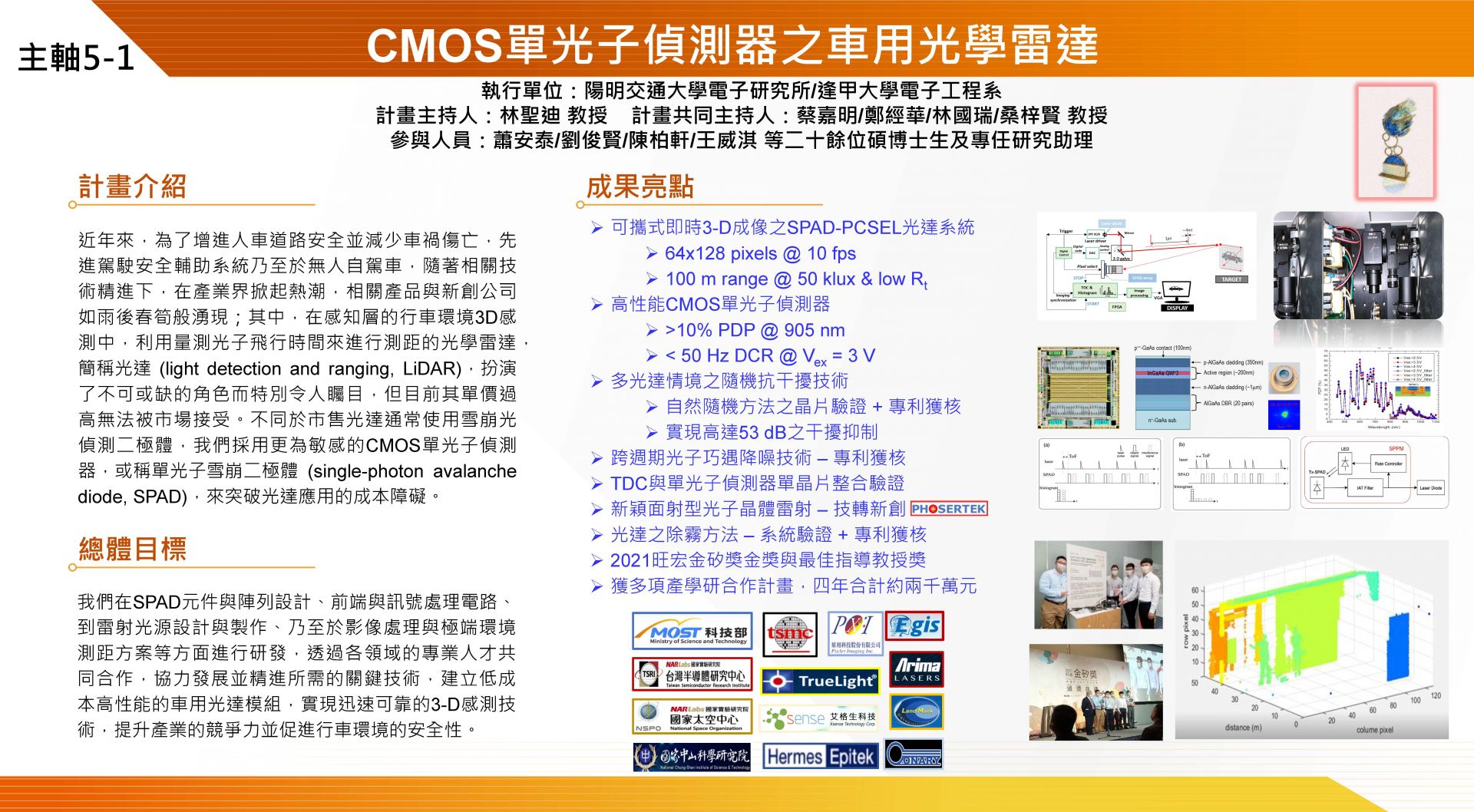Autonomous cars have become a fever issue in recent years. With the continuous improvement of related technologies, LiDAR has become an indispensable sensing device for autonomous cars, which is equivalent to the 3D-vision “eyes” of autonomous cars. The project “Vehicle LiDAR using CMOS Single-photon Detectors” is completed in a strong sunshine environment, achieving a 100-meter accurate distance measurement technology in a very short time (<20μs), which can shorten the calculation time of LiDAR and expand the sensing range of autonomous cars to surrounding objects. For LiDAR system, it has an application-level indexing significance. We expect the impact on social, industrial and academic aspects as follows.
- Social aspects: Low-cost long-distance vehicle LiDAR can be used as the main sensor for automatic braking systems, helping to reduce casualties in traffic accidents.
- Industrial aspects: A number of industrial-academic cooperation projects and the display of strong sunshine distance ranging capabilities would attract industry investment.
- Academic aspects: Many top-peer journal and conference papers and key-technology patent outputs.
